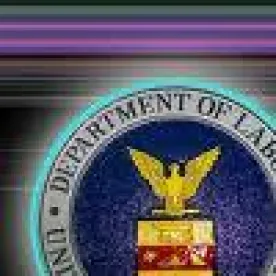This is my 63rd article about interesting observations concerning the Department of Labor’s fiduciary rule and exemptions. These articles also cover the DOL’s FAQs interpreting the regulation and exemptions and related developments in the securities laws.
On August 31, the Department of Labor (DOL) issued its proposal to extend the transition period for three prohibited transaction exemptions until July 1, 2019. Those exemptions are the Best Interest Contract Exemption (BICE), the 84-24 exemption (for sale of annuities and insurance products), and the Principal Transactions Exemption. In all likelihood, the DOL will finalize that extension within the next 60 days.
The practical effect will be to both delay the applicability date of the final exemptions until July 1, 2019 and to extend the transition versions of those exemptions until June 30, 2019.
However, the DOL is not proposing to extend the applicability date of the fiduciary rule. The full fiduciary regulation applied earlier this year–on June 9, 2017. In other words, advisors to “qualified” accounts (i.e., plans, participant accounts and IRAs) already are fiduciaries. And, where the advisor or the advisor’s supervisory entity (for example, a broker-dealer) receives payments from third parties (such as insurance commissions or 12b-1 fees), or where the advice increases their compensation, those payments will be prohibited transactions. As a result, those advisors and entities will need the protection of a prohibited transaction exemption.
BICE is the exemption that will be used for most transactions. In order to comply with BICE, the supervisory entity and the advisor must satisfy the three Impartial Conduct Standards: the best interest standard of care; no more than reasonable compensation; and no materially misleading statements.
It is commonly believed that BICE requires satisfaction of only those three conditions. However, that is not the case. There is a fourth, and less well-known, requirement. As stated in the DOL’s August 31 guidance:
“During the Transition Period, the Department expects financial institutions to adopt such policies and procedures as they reasonably conclude are necessary to ensure that advisers comply with the impartial conduct standards. During that period, however, the Department does not require firms and advisers to give their customers a warranty regarding their adoption of specific best interest policies and procedures, nor does it insist that they adhere to all of the specific provisions of Section IV of the BIC Exemption as a condition of compliance. Instead, financial institutions retain flexibility to choose precisely how to safeguard compliance with the impartial conduct standards, whether by tamping down conflicts of interest associated with adviser compensation, increased monitoring and surveillance of investment recommendations, or other approaches or combinations of approaches.” (Emphasis added.)
As a result, supervisory entities, such as broker-dealers and RIAs, need to ensure that their practices, policies and procedures, and supervision are adequate to protect retirement investors from the conflicts arising from advisor compensation that could incent an advisor to make recommendations that are not in the best interest of a retirement investor. While the conflict can arise in any situation involving commissions or similar transactional payments, there are other, less obvious, areas where the conflict can be significant and where, therefore, the policies and practices may need to be strengthened. For example, when an advisor recommends that a participant take a distribution and roll it over to an IRA, that recommendation typically results in higher compensation for the advisor. And, where the rollover amount is large, the additional compensation can be significant. As a result, financial institutions, such as broker-dealers and RIAs, need to have compliant processes in place to ensure that inappropriate rollover recommendations are not made. In addition, those recommendations need to be supervised to ensure compliance with the best interest standards. This is an area where a conservative approach is good risk management.
The same concept applies to other types of recommendations where significant increases in compensation to advisors could result, as well as to bonus and recruiting arrangements. Any arrangement that materially increases advisor compensation should be closely vetted. That vetting should occur at three levels. The first is the design of the compensation system; the second is the development of policies and procedures to oversee that fiduciary recommendations are in the best interest of retirement investors; and the third is the supervision of those policies and procedures. Now is the time to review practices, policies and supervision in light of the DOL’s expectations.
The views expressed in this article are the views of Fred Reish, and do not necessarily reflect the views of Drinker Biddle & Reath.
Part 1- Interesting Angles on DOL’s Fiduciary Rule #1
Part 2 - Best Interest Standard of Care: Interesting Angles on the DOL’s Fiduciary Rule #2
Part 3 - Hidden Preamble Observations: Interesting Angles on the DOL’s Fiduciary Rule #3
Part 4 - TV Stock Tips and Fiduciary Advice: Interesting Angles on DOL’s Fiduciary #4
Part 5 - Level Fee Fiduciary Exemption: Interesting Angles on DOL’s Fiduciary Rule #5
Part 6 - Fiduciary Regulation And The Exemptions: Interesting Angles on the DOL’s Fiduciary Rule #6
Part 7 - Fiduciary Regulations And The Exemptions : Interesting Angles on the DOL’s Fiduciary Rule #7
Part 8 - Designated Investment Alternatives: Interesting Angles on the DOL’s Fiduciary Rule #8
Part 9 - Best Interest Standard and the Prudent Man Rule: Interesting Angles on the DOL’s Fiduciary Rule #9
Part 10 - FINRA Regulatory Notice: Interesting Angles on the DOL’s Fiduciary Rule #10
Part 11-ERISA and the Internal Revenue Code: Interesting Angles on the DOL’s Fiduciary Rule #11
Part 12- Potential Prohibited Transactions: Interesting Angles on the DOL’s Fiduciary Rule #12
Part 13-Investment Policies: Interesting Angles on the DOL’s Fiduciary Rule #13
Part 14- Investment Suggestions: Interesting Angles on the DOL’s Fiduciary Rule #14
Part 15- Best Interest Contract Exemption: Interesting Angles on the DOL’s Fiduciary Rule #15
Part 16 - Adviser Recommendations: Interesting Angles on DOL’s Fiduciary Rule #16
Part 17 - Level Fee Fiduciary: Interesting Angles on DOL’s Fiduciary Rule #17
Part 19- Interesting Angles on the DOL’s Fiduciary Rule #19: Advisors' Use of "Hire Me" Practices.
Part 20- Three Parts of "Best Interest Standard of Care": Interesting Angles on the DOL’s Fiduciary Rule #20
Part 22-Banks and Prohibited Transactions: Interesting Angles on the DOL’s Fiduciary Rule #22
Part 24 - Differential Compensation Based on Neutral Factors: Interesting Angles on DOL’s Fiduciary Rule #24
Part 25-Reasonable Compensation Versus Neutral Factors: Interesting Angles on the DOL’s Fiduciary Rule #25
Part 27 - Definition of Compensation: Interesting Angles on DOL’s Fiduciary Rule #27
Part 28 - What About Rollovers that Aren’t Recommended?: Interesting Angles on the DOL’s Fiduciary Rule #28
Part 29- Capturing Rollovers: What Information is Needed?: Interesting Angles on the DOL’s Fiduciary Rule #29
Part 31 - “Un-levelizing” Level Fee Fiduciaries: Interesting Angles on the DOL’s Fiduciary Rule #31
Part 33- Discretionary Management, Rollovers and BICE: Interesting Angles on the DOL’s Fiduciary Rule #33
Part 34- Seminar Can Be Fiduciary Act: Interesting Angles on DOL’s Fiduciary Rule #34
Part 35- Presidential Memorandum on Fiduciary Rule: Interesting Angles on the DOL’s Fiduciary Rule #35
Part 36 -Retirement Advice and the SEC: Interesting Angles on the DOL’s Fiduciary Rule #36
Part 37 - SEC Retirement-Targeted Examinations: Interesting Angles on the DOL’s Fiduciary Rule #37
Part 42 - Rollovers under DOL’s Final Rule: Interesting Angles on DOL’s Fiduciary Rule #42
Part 43 - BICE Transition: More Than the Eye Can See - Interesting Angles on DOL’s Fiduciary Rule #43
Part 44 - Basic Structure of Fiduciary Package (June 9): Interesting Angles on DOL’s Fiduciary Rule #44
Part 47- “Real” Requirements of Fiduciary Rule: Interesting Angles on DOL’s Fiduciary Rule #47
Part 49- The Requirement to Disclose Fiduciary Status: Interesting Angles on the DOL’s Fiduciary Rule #49
Part 50- Fourth Impartial Conduct Standard: Interesting Angles on DOL’s Fiduciary Rule #50
Part 51- Recommendations to Transfer IRAs: Interesting Angles on the DOL’s Fiduciary Rule #51
Part 54 - The DOL’s RFI and Possible changes to BICE: Interesting Angles on the DOL’s Fiduciary Rule #54
Part 55- DOL’s RFI and Recommendation of Annuities- Interesting Angles on DOL’s Fiduciary Rule #55
Part 58- Recommendations to Contribute to a Plan or IRA- Interesting Angles on the DOL’s Fiduciary Rule #58
Part 60- What the Tibble Decision Means to Advisers: Interesting Angles on the DOL’s Fiduciary Rule #60
Part 61- The Fiduciary Rule, Distributions and Rollovers: Interesting Angles on the DOL’s Fiduciary Rule #61
Part 65- Unexpected Consequences of Fiduciary Rule - Interesting Angles on the DOL’s Fiduciary Rule #65
Part 66- Concerns About 408(b)(2) Disclosures: Interesting Angles on the DOL’s Fiduciary Rule #66
Part 67- From the DOL to the SEC - Interesting Angles on the DOL’s Fiduciary Rule #67
Part 68-Recommendations of Distributions - Interesting Angles on the DOL’s Fiduciary Rule #68
Part 69- Compensation Risks for Broker-Dealers and RIAs: Interesting Angles on the DOL’s Fiduciary Rule #69
Part 70-The Fiduciary Rule and Recordkeeper Services: Interesting Angles on the DOL’s Fiduciary Rule #70
Part 71- Recordkeepers and Financial Wellness Programs: Interesting Angles on the DOL’s Fiduciary Rule #71
Part 72-The "Wholesaler" Exception: Interesting Angles on the DOL’s Fiduciary Rule #72
Part 74 -One More Fiduciary Issue for Recordkeepers: Interesting Angles on the DOL’s Fiduciary Rule #74
Part 75 - The Fiduciary Rule: Mistaken Beliefs-Interesting Angles on the DOL’s Fiduciary Rule #75
Part 77 - The Fiduciary Rule: Mistaken Beliefs (#2): Interesting Angles on the DOL’s Fiduciary Rule #77
Part 78 - The Fiduciary Rule: Mistaken Beliefs (#3): Interesting Angles on the DOL’s Fiduciary Rule #78
Part 79 - The Fiduciary Rule: Mistaken Beliefs (#4)- Interesting Angles on the DOL’s Fiduciary Rule #79
Part 80 - Enforceable During Transition?: Interesting Angles on the DOL’s Fiduciary Rule #80
Part 83 - Part 2 of Undisclosed (and Disclosed) 12b-1 Fees: Interesting Angles on the DOL’s Fiduciary Rule #83
Part 85 -The Fiduciary Rule: What’s Next (Part 1)? : Interesting Angles on the DOL’s Fiduciary Rule #85
Part 86- The Fiduciary Rule: What’s Next (Part 2)?: Interesting Angles on the DOL’s Fiduciary Rule #86
Part 87 - The Fiduciary Rule: What’s Next (Part 3)?: Interesting Angles on the DOL’s Fiduciary Rule #87
Part 88 -The Fiduciary Rule: What’s Next (Part 4)? : Interesting Angles on the DOL’s Fiduciary Rule #88




 />i
/>i

